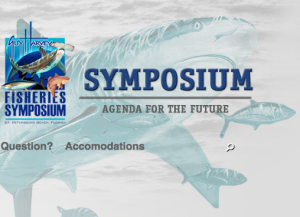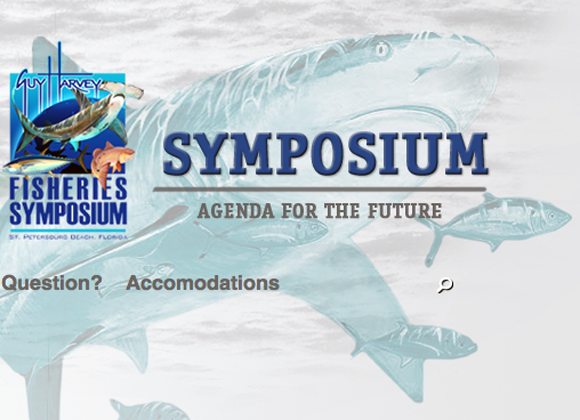Future of Multi-Billion-Dollar Gulf Fisheries To Be Reviewed
ST. PETERSBURG, FLORIDA
OCTOBER, 2014
[dropcap]A[/dropcap] panel of experts will offer critical suggestions on how post-Gulf of Mexico oil catastrophe research funds should be spent. The panel is just one of the key marine presentations at the Guy Harvey Fisheries Symposium at the University of South Florida St. Petersburg Campus.
 The Nov. 13-14 gathering is one of the few ocean- and marine-focused conferences that draws a diverse group of stakeholders – scientists, environmentalists, government policy-makers as well as recreational and commercial fishermen – concerned with fisheries management. In addition to Restore Act funding, the meeting will address controversial red snapper regulations and update attendees on current research, ways to promote aquaculture and the health of the Gulf of Mexico ecosystem and fishery.
The Nov. 13-14 gathering is one of the few ocean- and marine-focused conferences that draws a diverse group of stakeholders – scientists, environmentalists, government policy-makers as well as recreational and commercial fishermen – concerned with fisheries management. In addition to Restore Act funding, the meeting will address controversial red snapper regulations and update attendees on current research, ways to promote aquaculture and the health of the Gulf of Mexico ecosystem and fishery.
The two-day Fisheries Symposium will be at the University Center Grand Ballroom on the USF campus. The conference is open to the general public, but a nominal $25 registration fee is required.
The symposium will be followed on Saturday, Nov. 15, with a public, free sustainable seafood festival with exhibits on marine science and conservation – teachers and students are especially urged to attend.
In the Restore Act panel, representatives from Florida, Alabama, Mississippi, Louisiana and Texas — five Gulf States directly affected by the catastrophic Deepwater Horizon oil spill in 2010 — along with the National Oceanic Atmospheric Administration (NOAA) will review and provide recommendations for dispersals on Restore Act 2015 funding covering research and monitoring.
Florida representative Dr. Bill Hogarth, director of the Florida Institute of Oceanography and former Assistant Administrator for Fisheries at NOAA, said $40 million in research funding is at stake.
“Our role at the Fisheries Symposium is to discuss how that money will be utilized and prepare a process to award research grants,” he said.
Stakeholders involved in the management of red snapper fisheries in the Gulf will tackle the highly controversial topic at the Fisheries Symposium. Federal management of Gulf red snapper allowed for just a nine-day recreational fishing season in 2014, which has raised the ire of many. Organizations participating in this panel include the National Marine Fisheries Service (NMFS), University of South Alabama, Texas A&M, Coastal Conservation Association (CCA), and the Gulf of Mexico Reef Fish Society.
Other panel discussions will include updates on Gulf fisheries issues, aquaculture, marine science education in public schools, invasive lionfish, fisheries research and the Gulf of Mexico Research Initiative (GoMRI) project. Florida US Sen. Bill Nelson will attend on Friday to accept The Guy Harvey Excellence Award.
Also on Friday, Nov. 14, students and researchers from USF will be aboard the R/V Weatherbird II, a 114-foot research vessel, involved in repeated voyages to carry out scientific missions following the Deepwater Horizon oil spill disaster. Students will be conducting a research demonstration that will be broadcast to the symposium ballroom through USF’s educational TV.
The ultimate mission of the symposium is to provide a platform where all stakeholder groups can share knowledge and move forward with a unified mission of a sustainable and healthy fishery in the Gulf of Mexico.
For a final agenda, listing of speakers and panelists and registration, please go to www.gulffisheriessymposium.com


